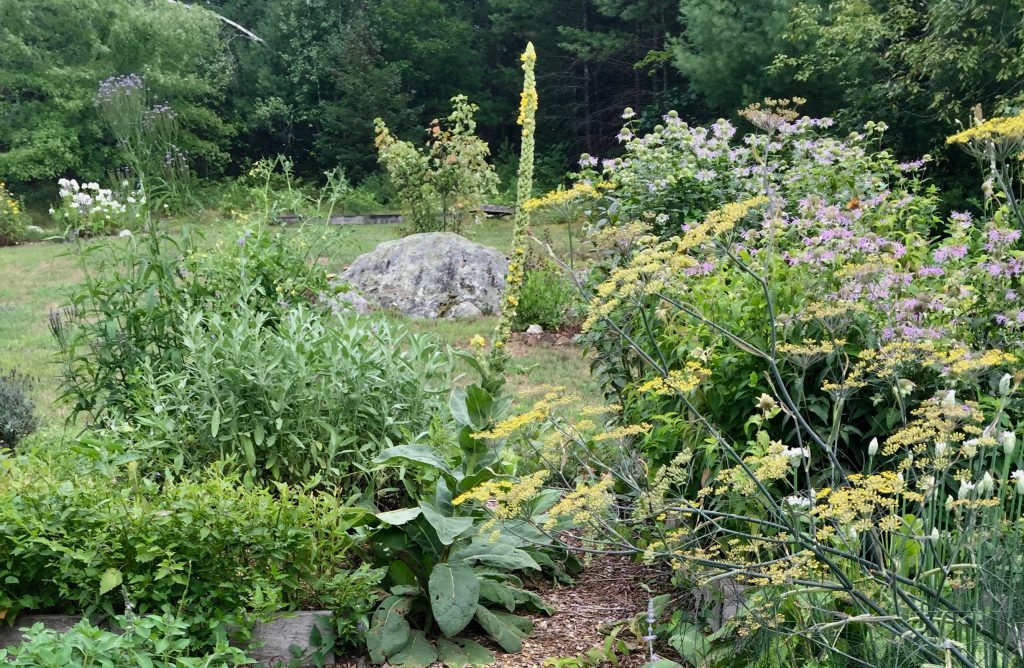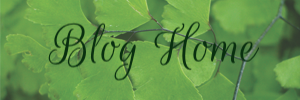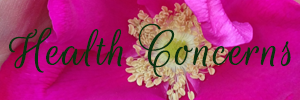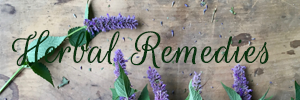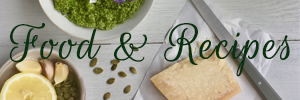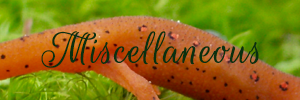Prefer to Listen or Watch Rather than Read??
- Listen: 2.5 hour class recording HerbRally podcast
- Watch: 1 hour online Herbs in Action summit video
Natural Approaches for Lung Health
Both acute and chronic lung disease can be dangerous, and it’s imperative to see a doctor or similar practitioner for assessment and diagnosis. A round of antibiotics or an emergency inhaler may even be necessary. However, using herbs and lifestyle techniques alongside can be incredibly valuable to heal lung imbalances. They may minimize or eliminate the need for drugs*, or help the pharmaceuticals work more effectively. You may even be able to rely solely on herbs to find relief. This is where herbalism shines: helping the body repair damage and bring the body back into balance.
When dealing with lung issues herbally, I like to double dip. Try a combination of remedies – tea and tincture, perhaps also a mushroom capsule or soup – that feature a variety of herbs customized to your needs. The ability of natural remedies to impact and improve lung health is nothing short of miraculous.
Open the Airways
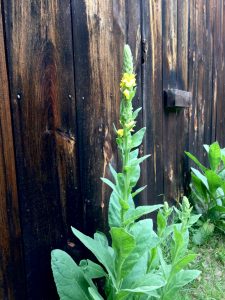 Many lung issues such as asthma and bronchitis involve a constriction of the lungs and bronchi. One of my favorite go-to herbs is mullein leaf (Verbascum thapsus), which can be taken as tea (strain hairy leaves well through teabag or coffee filter), tincture, or both for a variety of lung issues including asthma, bronchitis, impending respiratory infection, and lung irritation. Mullein seems to relieve irritation in both infection and chronic cases, helping people take deeper breaths, and possibly also repairing lung tissue. Consider elecampane (Inula helenium), a lovely garden flower whose balsam-y roots are traditionally used to relieve bronchial spasms, fight infection, and move and clear congestion. I fell in love with cherry-flavored yerba santa (Eriodictyon spp.) when I lived in the west. The leaf has a long history of use with any lung issue including emphysema, asthma, infection, bronchitis, and chronic cough thanks to the aromatic resins and drying nature of the leaves. These are my three favorites, which are generally safe for most and blend well with other supportive herbs mentioned below. For more acute spasmodic issues, many herbalists also rely on two more controversial herbs: Fresh lobelia aerial (Lobelia inflata) tincture taken in low doses provides immediate relief for spasms, but too much can cause nausea and vomiting. Ephedra (Ephedra spp.) contains compounds that are similar to pseudoephedrine, and it is used as a bronchodilator in small amounts for issues like asthma and in higher doses to avert an asthma attack. However, it can be dangerous for sensitive people or in high amounts, and deaths related to overuse in diet and weight-loss products and recreational drugs have made it illegal.
Many lung issues such as asthma and bronchitis involve a constriction of the lungs and bronchi. One of my favorite go-to herbs is mullein leaf (Verbascum thapsus), which can be taken as tea (strain hairy leaves well through teabag or coffee filter), tincture, or both for a variety of lung issues including asthma, bronchitis, impending respiratory infection, and lung irritation. Mullein seems to relieve irritation in both infection and chronic cases, helping people take deeper breaths, and possibly also repairing lung tissue. Consider elecampane (Inula helenium), a lovely garden flower whose balsam-y roots are traditionally used to relieve bronchial spasms, fight infection, and move and clear congestion. I fell in love with cherry-flavored yerba santa (Eriodictyon spp.) when I lived in the west. The leaf has a long history of use with any lung issue including emphysema, asthma, infection, bronchitis, and chronic cough thanks to the aromatic resins and drying nature of the leaves. These are my three favorites, which are generally safe for most and blend well with other supportive herbs mentioned below. For more acute spasmodic issues, many herbalists also rely on two more controversial herbs: Fresh lobelia aerial (Lobelia inflata) tincture taken in low doses provides immediate relief for spasms, but too much can cause nausea and vomiting. Ephedra (Ephedra spp.) contains compounds that are similar to pseudoephedrine, and it is used as a bronchodilator in small amounts for issues like asthma and in higher doses to avert an asthma attack. However, it can be dangerous for sensitive people or in high amounts, and deaths related to overuse in diet and weight-loss products and recreational drugs have made it illegal.
Soothe
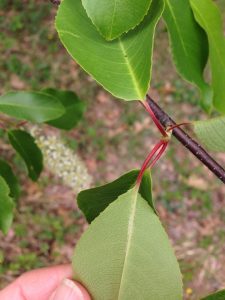 Many of the same herbs we use to soothe and heal tissue in the throat and digestive tract are equally valuable for the respiratory tract. These herbs are generally slimy and/or wound-healing by nature, and they make a lovely supportive base for other herbs in a formula. Marshmallow root (Althea officinalis), almost any malva family leaf or flower (Althea and Malva species), and slippery elm bark (Ulmus fulva, U. rubra) all provide the classic soothing slime and are best taken as tea to decrease irritation, moisten, and help heal tissue. Licorice root (Glycyrrhiza glabra) has added immune-supportive and expectorant properties, and it lends a pleasant flavor to blends; however, it can aggravate blood pressure and kidney issues in some sensitive people. Plantain leaf (Plantago spp.) has anti-inflammatory and healing properties that soften and support other herbs in a formula. Another category of soothers relieve coughs and general irritation in the bronchi. Wild cherry bark (Prunus serotina, P. virginiana) is specific to stop a dry, irritated, hacking cough reflux and for lungs irritated by things like wood smoke. Horehound (Marrubium vulgare) soothes productive, wet coughs. Honey assists all types of coughs, soothes irritation, and blends well with herbs. Try adding it to teas, tinctures, and syrups. For immediate relief, slowly licking a spoonful of creamy or crystallized honey works well.
Many of the same herbs we use to soothe and heal tissue in the throat and digestive tract are equally valuable for the respiratory tract. These herbs are generally slimy and/or wound-healing by nature, and they make a lovely supportive base for other herbs in a formula. Marshmallow root (Althea officinalis), almost any malva family leaf or flower (Althea and Malva species), and slippery elm bark (Ulmus fulva, U. rubra) all provide the classic soothing slime and are best taken as tea to decrease irritation, moisten, and help heal tissue. Licorice root (Glycyrrhiza glabra) has added immune-supportive and expectorant properties, and it lends a pleasant flavor to blends; however, it can aggravate blood pressure and kidney issues in some sensitive people. Plantain leaf (Plantago spp.) has anti-inflammatory and healing properties that soften and support other herbs in a formula. Another category of soothers relieve coughs and general irritation in the bronchi. Wild cherry bark (Prunus serotina, P. virginiana) is specific to stop a dry, irritated, hacking cough reflux and for lungs irritated by things like wood smoke. Horehound (Marrubium vulgare) soothes productive, wet coughs. Honey assists all types of coughs, soothes irritation, and blends well with herbs. Try adding it to teas, tinctures, and syrups. For immediate relief, slowly licking a spoonful of creamy or crystallized honey works well.
Rebuild
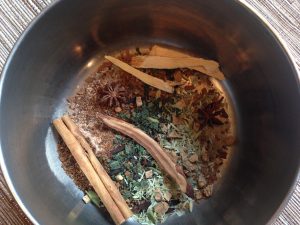 Mushrooms and fungi have amazing healing capabilities, with certain species able to strengthen the whole respiratory system over time, making you less susceptible to repeat infections like bronchitis and pneumonia, boosting oxygen utilization and possibly boosting or improving red blood cells, and modulating immune response. Reishi (Ganoderma lucidum) and cordyceps (Cordyceps sinensis) stand out, but other medicinal mushrooms may also help, and they blend well with immuno-supportive herbs like astragalus (Astragalus membranaceus) and schizandra (Schisandra chinensis). Try capsules, tincture, or food forms such as concentrated, long-simmered teas/broths preserved as ice cubes. Some relief may be noted within a few days, but the effects build over a few weeks or months.
Mushrooms and fungi have amazing healing capabilities, with certain species able to strengthen the whole respiratory system over time, making you less susceptible to repeat infections like bronchitis and pneumonia, boosting oxygen utilization and possibly boosting or improving red blood cells, and modulating immune response. Reishi (Ganoderma lucidum) and cordyceps (Cordyceps sinensis) stand out, but other medicinal mushrooms may also help, and they blend well with immuno-supportive herbs like astragalus (Astragalus membranaceus) and schizandra (Schisandra chinensis). Try capsules, tincture, or food forms such as concentrated, long-simmered teas/broths preserved as ice cubes. Some relief may be noted within a few days, but the effects build over a few weeks or months.
Move Congestion
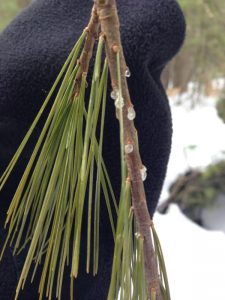 When lung issues are characterized by cold, damp conditions such as congested phlegm and mucus, as well as potential infection, several aromatic and warming herbs come into play. Consider ginger (Zingiber officinale) fresh root tea, tincture, and syrups (especially honey-based syrups), lightly cooked onions, fresh thyme (Thymus vulgaris and other species) tincture, tea, and in food, ample cayenne and hot peppers in food or as a small percentage of an herb formula, and other pungent food-herbs. Harvest fresh evergreen needles of balsam fir (Abies balsamea), white pine (Pinus strobus), spruce (Picea spp.), or hemlock tree (Tsuga canadensis) to use as tea, tincture, or infused honey. Another favorite of mine is horehound, particularly as fresh herb tincture, to thin and bring up mucus, ease spasms, and alleviate wet coughs. A lesser-known but widespread wildflower in the west is grindelia (Grindelia squarrosa and other species). The gummy flowers extract well in alcohol (tincture) and loosen, thin, and bring up mucus to clear congestion. It’s classically used in a wide range of lung issues.
When lung issues are characterized by cold, damp conditions such as congested phlegm and mucus, as well as potential infection, several aromatic and warming herbs come into play. Consider ginger (Zingiber officinale) fresh root tea, tincture, and syrups (especially honey-based syrups), lightly cooked onions, fresh thyme (Thymus vulgaris and other species) tincture, tea, and in food, ample cayenne and hot peppers in food or as a small percentage of an herb formula, and other pungent food-herbs. Harvest fresh evergreen needles of balsam fir (Abies balsamea), white pine (Pinus strobus), spruce (Picea spp.), or hemlock tree (Tsuga canadensis) to use as tea, tincture, or infused honey. Another favorite of mine is horehound, particularly as fresh herb tincture, to thin and bring up mucus, ease spasms, and alleviate wet coughs. A lesser-known but widespread wildflower in the west is grindelia (Grindelia squarrosa and other species). The gummy flowers extract well in alcohol (tincture) and loosen, thin, and bring up mucus to clear congestion. It’s classically used in a wide range of lung issues.
Fight Infection
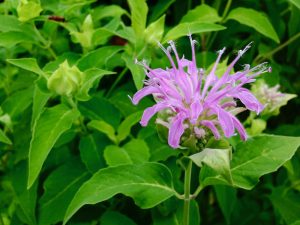 Many of the herbs previously mentioned have some level of anti-microbial effect, either directly discouraging germs or enhancing the body’s immune response. Aromatic, balsam-y, and pungent herbs can be particularly helpful, such as the evergreens, raw garlic, and strongly aromatic mint family herbs with a bite such as oregano (Origanum vulgare), bee balm (Monarda fistulosa and other species), hyssop (Hyssopus officinalis), thyme… Ample amounts from a diversity of plants are usually necessary in acute infections. We tend to excrete the aromatics of these herbs through our lungs – this is partly how they work to disinfect the lungs – so don’t be surprised if you smell like a pungent pizza for a few days. Tea, tincture, food, soup, capsule… however you can get them in!
Many of the herbs previously mentioned have some level of anti-microbial effect, either directly discouraging germs or enhancing the body’s immune response. Aromatic, balsam-y, and pungent herbs can be particularly helpful, such as the evergreens, raw garlic, and strongly aromatic mint family herbs with a bite such as oregano (Origanum vulgare), bee balm (Monarda fistulosa and other species), hyssop (Hyssopus officinalis), thyme… Ample amounts from a diversity of plants are usually necessary in acute infections. We tend to excrete the aromatics of these herbs through our lungs – this is partly how they work to disinfect the lungs – so don’t be surprised if you smell like a pungent pizza for a few days. Tea, tincture, food, soup, capsule… however you can get them in!
Decrease Inflammation
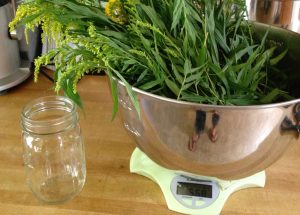 Inflammation is one of the key components to many types of lung issues, particularly those that are chronic. Asthma suffers notoriously suffer from food sensitivities and allergies, often undiagnosed, with gluten/wheat and dairy leading the pack. Eliminate these foods while opting for a whole-foods diet rich in bioflavonoids and anti-inflammatory compounds: a rainbow vegetables, berries, wild foods, herbs, spices and plants of all types all well as pastured or wild animal products in moderation. Omega-3 fatty acids from fish oil supplements or food sources can also help decrease inflammation while helping the cells throughout the body repair and function better. The herb goldenrod (Solidago canadensis and other species) is my favorite bioflavonoid herb, which seems to decrease the histamine response, thin mucus, and drain congestion, especially when combined with other lung herbs.
Inflammation is one of the key components to many types of lung issues, particularly those that are chronic. Asthma suffers notoriously suffer from food sensitivities and allergies, often undiagnosed, with gluten/wheat and dairy leading the pack. Eliminate these foods while opting for a whole-foods diet rich in bioflavonoids and anti-inflammatory compounds: a rainbow vegetables, berries, wild foods, herbs, spices and plants of all types all well as pastured or wild animal products in moderation. Omega-3 fatty acids from fish oil supplements or food sources can also help decrease inflammation while helping the cells throughout the body repair and function better. The herb goldenrod (Solidago canadensis and other species) is my favorite bioflavonoid herb, which seems to decrease the histamine response, thin mucus, and drain congestion, especially when combined with other lung herbs.
Other Considerations
Contaminants in the air may be affecting you, such as new carpet chemicals, dust, mold, dander, pollen, smog, and wood smoke. To the best of your abilities, try to minimize your exposure. Reflux and heartburn can also cause or aggravate lung issues (most of our “soothing” herbs are helpful for healing digestive tissues, but you’ll want to address the cause as well). Emotional trauma is frequently linked to chronic lung issues, and dealing with this through cognitive-behavior therapy and other forms of mind-body balance can be incredibly helpful to support your respiratory response. Also consider some of our adaptogenic and calming herbs as supportive players in your lung formula such as holy basil (Ocimum sanctum), codonopsis, ashwagandha (Withania somnifera), astragalus, schizandra, and hawthorn (Crataegus spp.). And, as previously mentioned, Rest, Rest, Rest is incredibly important in acute phases of chronic issues as well as during the whole recuperation of illness.
Listen & Learn
- My 2.5-Hour Lung Herb Class Podcast for FREE on HerbRally
- Herbal Support for the Lungs Herbs in Action Summit Video
(you will need to enter your email and name to access, but access is free) - Part 1: Allergy & Sinus Podcast on Real Herbalism Radio with The Practical Herbalist
- Part 2: Lung Herbs Podcast on Real Herbalism Radio with The Practical Herbalist
Read & More
- My lengthier, updated class notes for FREE on HerbRally (will download to your computer automatically)
- My lecture slides, complete with photos of the herbs!
- New England Aster monographs by jim mcdonald and Kristine Brown
- Respiratory articles by several great herbalists available on the HerbCraft website
*Only a doctor is qualified to give advice on how to take, reduce, or eliminate pharmaceutical drugs. If you take medications, check with your pharmacist for potential interactions before taking herbs, and also keep your doctor informed.
Clinical herbalist Maria Noël Groves sees clients and teaches classes at Wintergreen Botanicals Herbal Clinic & Education Center in Allenstown, New Hampshire.
The statements made on this blog have not been evaluated by the FDA and are not intended to diagnose, prescribe, recommend, or offer medical advice. Please see your health care practitioner for help regarding choices and to avoid herb-drug interactions.
This article originally appeared in Herb Quarterly magazine.

